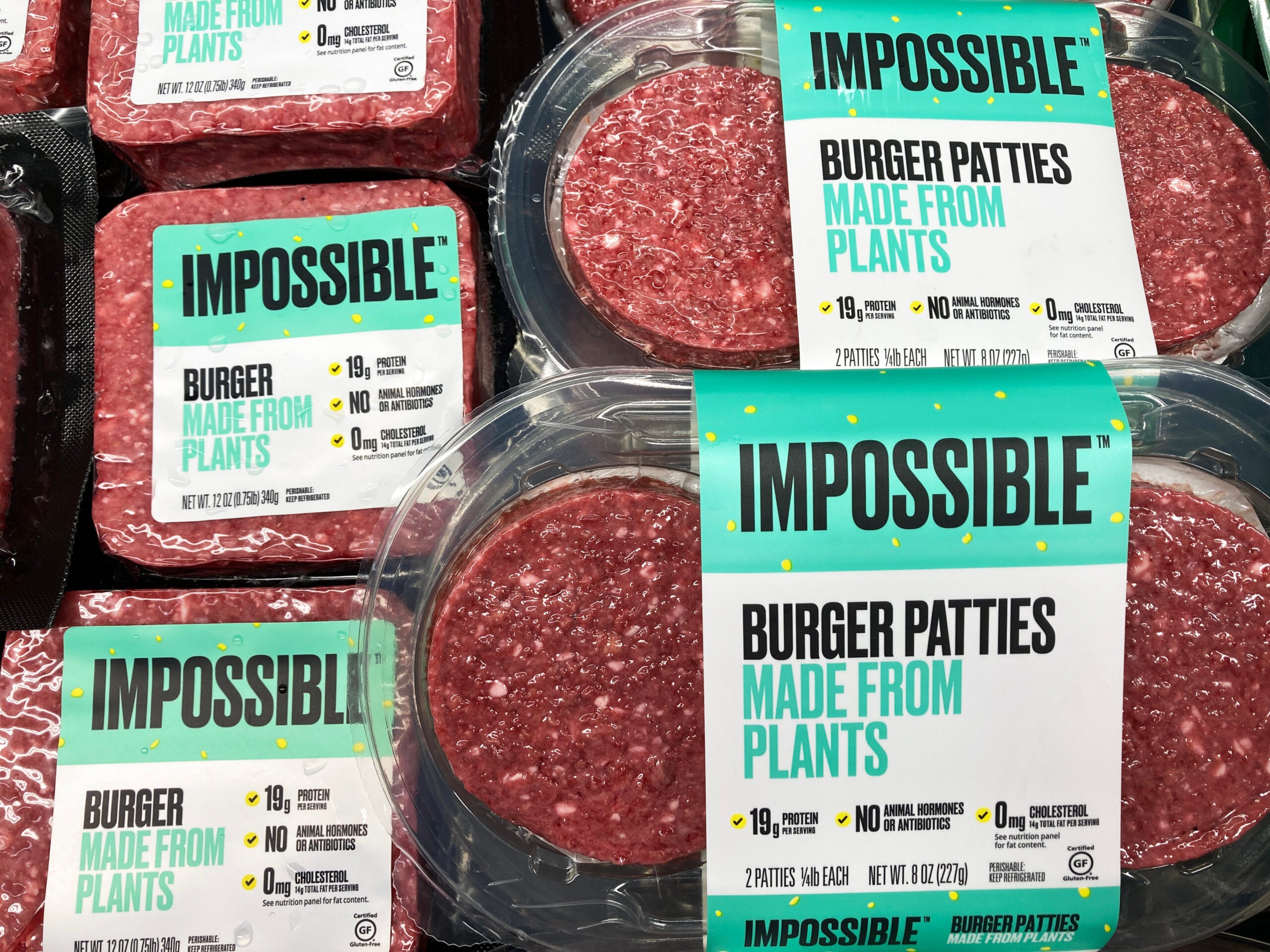
Venture capitalists are showing an ever-increasing appetite to invest in alternatives to meat and liquid milk.
In both sectors, venture-finance deals have consistently accounted for the largest proportion of transactions but their share is increasing, GlobalData analysis shows.

Discover B2B Marketing That Performs
Combine business intelligence and editorial excellence to reach engaged professionals across 36 leading media platforms.
Last year, venture finance made up 61.7% of deals involving companies in the market for meat substitutes and 46.3% of transactions centred on businesses offering alternatives to liquid milk.
Figures for 2021 show an increase of 38 and 22.5 percentage points for venture-finance transactions in the meat-substitute and milk-alternative markets respectively compared to two years earlier.
In 2019, the year before the Covid-19 pandemic hit, the proportion of deals for both industries was roughly the same at just under 24%.
That year, there were nine venture-finance transactions relating to meat substitutes, a figure that had risen to 58 by 2021. Five such deals took place in milk alternatives in 2019. In 2021, there were 19.

US Tariffs are shifting - will you react or anticipate?
Don’t let policy changes catch you off guard. Stay proactive with real-time data and expert analysis.
By GlobalDataBy comparison, full acquisitions of meat-substitute companies appear to have stagnated. GlobalData analysis shows there were 15 such transactions in 2019; last year, there were 13.
Looking at milk alternatives, there were 16 full acquisitions in 2021, versus four two years earlier.
It’s no surprise there has been growing investor interest in the sectors. Research from a 2021 global consumer survey conducted by GlobalData revealed 27% of participants described themselves as flexitarian or as following a low-meat diet. That was on top of the 7% who said they were vegetarian or vegan.
The biggest venture-finance deal in meat substitutes in 2021 was the $500m tranche of investment secured by US firm Impossible Foods in November. California-based Impossible Foods raised the money in a round led by existing investor Mirae Asset Global Investments. The round took the funds raised by Impossible Foods to close to $2bn since its founding in 2011.
Thomas Park, president of Mirae Asset Global Investments (US), said at the time: “Mirae Asset is excited to double down on the team at Impossible Foods as they continue transforming the global food system. It is important to us to partner with true innovators like Impossible Foods’ CEO Pat Brown and support the entire Impossible Foods team as they work to solve one of the most critical challenges facing our planet – climate change.”
Another Californian company, Perfect Day, struck the highest-value venture-finance deal in milk alternatives last year. The business, which develops animal-free milk proteins, secured $350m in Series D funds. The round took its total funding to $750m.
Just Food analysis: Is US plant-based meat market facing inflection point or short-term blip?
GlobalData classifies meat substitutes as: soy-based products; grain-based lines; those made from a single-cell protein such as fungi or algae; and ‘vegetable- or plant-based proteins’ such as those made from legumes.


